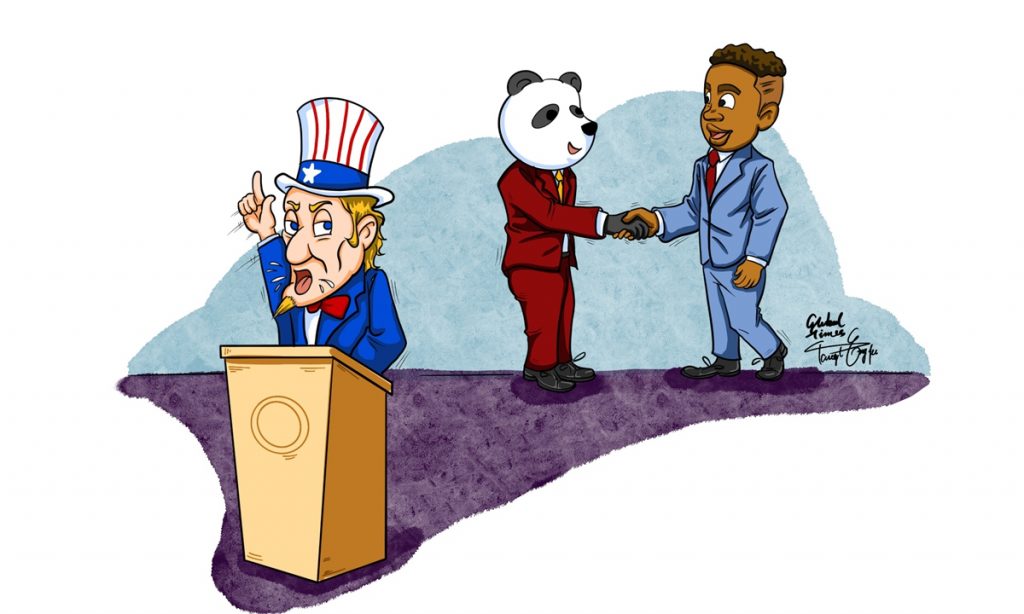
The US Secretary of State Antony Blinken, 100 days in office now, “paid” his first virtual trip to Africa. During a press briefing ahead of the trip, a US state department official Robert Godec said that “China is a very serious competitor”, and different from what China offers, the US will make the “most attractive” offers to Africa.
The Biden administration’s avowed “competing with China” narrative is repeated these days to become ubiquitous, which is also not left out of its possible cooperation with Africa. A strengthening relationship between the US and Africa is welcome, but the African continent should not be an arena for US’ ‘extreme competition’ with China.
Washington needs to make genuine moves to help the generally impoverished continent, instead of trying to put on another political stunt to diminish or confront China, or as it hopes to drive a wedge between Africa and China.
China and African countries have witnessed fruitful cooperation in a wide variety of areas in the past decades. In 20 years since the setup of the Forum on China-Africa Cooperation (FOCAC), the bilateral trade surged more than 20 times, and China’s direct investment in African continent skyrocketed more than 100 times.
Under the frameworks of FOCAC and Belt and Road Initiatives (BRI), cooperation between China and Africa is increasingly tangible and highly effective, bringing considerable benefits to the continent. However, in the eyes of the US-led Western world, it is not a pleasant development, though the West has made deficient efforts to facilitate the development of Africa for many years.
The foreign aid offered by the US government, a hegemonic power, has always been “value first”, with its constant efforts to impose its own values and rules on the continent, without considering whether African conditions are suitable for copying “US-style democracy”.
Through IMF and the World Bank, the US-led West in last century launched African development aid campaigns, pouring money to the continent with a precondition of reshaping African nations’ political systems.
However, the effect of boosting Africa’s development by the West mostly turned out to be futile. As the report by the United Nations Conference on Trade and Development in 2007, among 50 least developed countries in the world, 35 were located in Africa.
By contrast, China and Africa have enjoyed a profound history of friendship. The Chinese foreign minister’s New Year’s trip to Africa has become an unwritten tradition that has taken place annually for the past 31 years.
In providing assistance to African continent, China attaches no political strings, does not interfere in their internal affairs, and never seeks selfish political gains in carrying out investment and finance cooperation in the continent. Instead, China-Africa cooperation has been implemented based on full respect for African people, trying to find the most suitable and effective path for African countries’ development.
With its advanced technology and talent, China has been facilitating the construction of Africa’s infrastructure, including ports, railways and roads, creating job opportunities and economic growth momentum in the continent. In addition to investment, a good number of hard-working Chinese engineers and workers are making contributions to the growth of the continent.
The Biden administration is struggling to promote its own infrastructure plan at home which still faces uncertainty in the US Congress. Whether US government’s promise to hand out aid to Africa will materialize remains to be seen.
Global Times
 Africa -China Review Africa -China Cooperation and Transformation
Africa -China Review Africa -China Cooperation and Transformation
